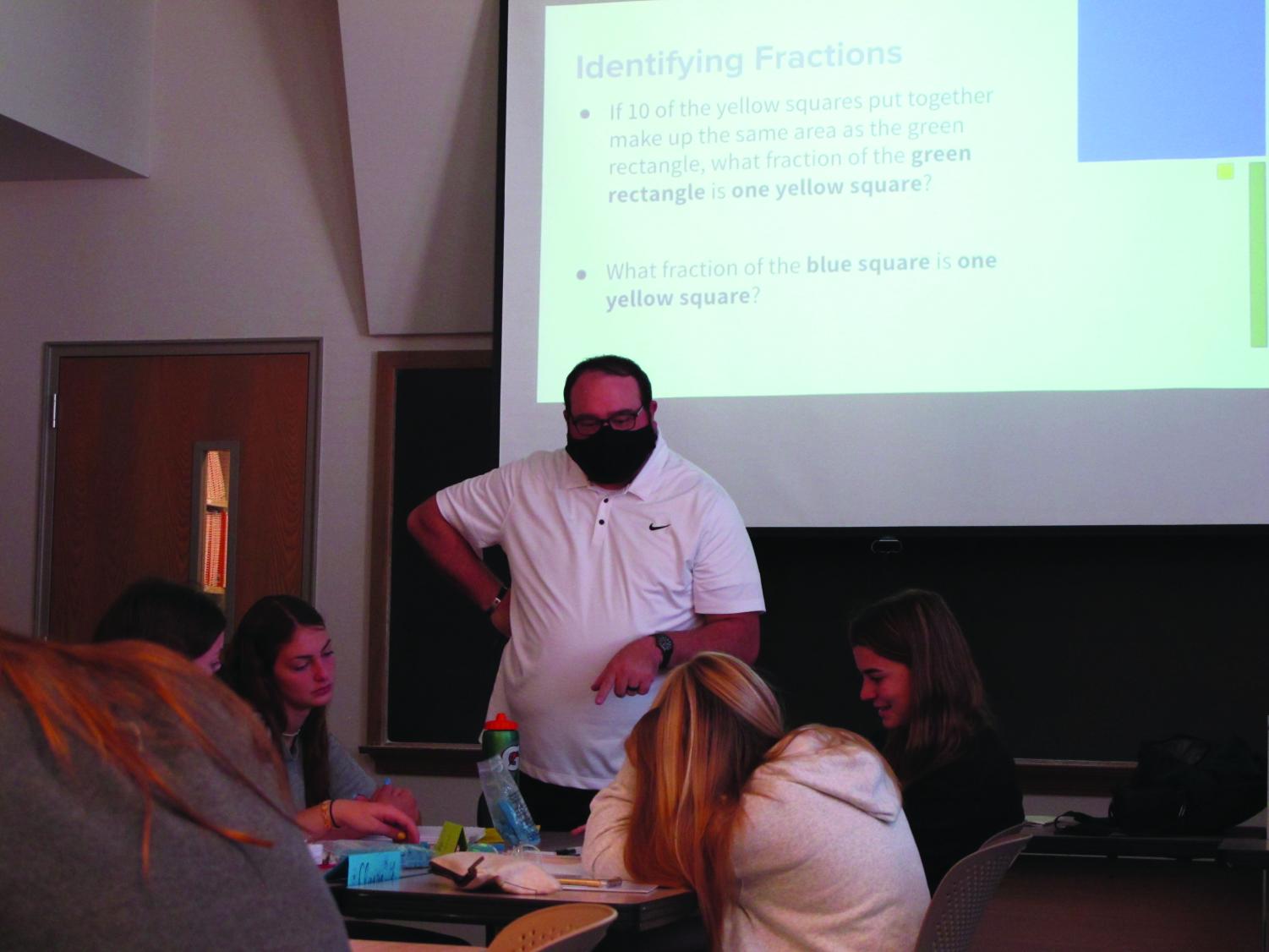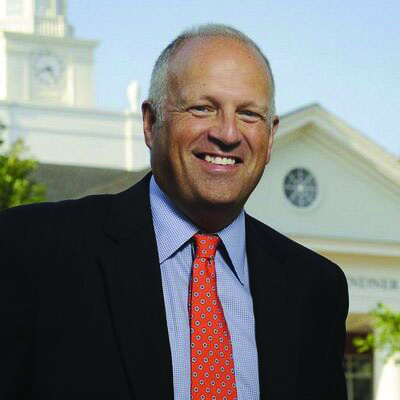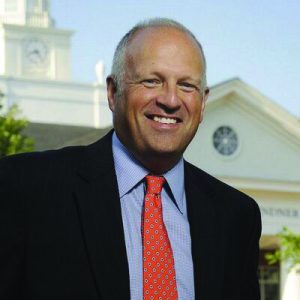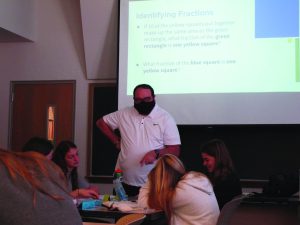Guest speaker Leo Lambert on keeping the heart in education
Jan 26, 2023
“How are you?” Leo Lambert, president of Elon University, says that this is the question that undergraduate students are hungry to hear from their professors. On Tuesday, Jan. 24, President Lambert sat down with faculty and staff from UNI and Wartburg to discuss the importance of building relationships and having authentic two way conversations with undergraduate students in the classroom.
In a study conducted by President Lambert for his book, “Relationship Rich Education,” students that have concrete relationships with their professors tend to have a higher graduation rate and tend to look back on their time in undergraduate school with fondness.
President Lambert also believes that relationships with faculty proves to be one of the reasons students stay at a four year institution, as many students are “one conversation away from deciding to stay.” “High level messaging about connections should be an institutional value. A college education without these connections is overall a poorer experience.” President Lambert describes the connections that undergraduate students have as “constellations.” He encourages educators to “forget about turnstiles” and think about how students might fit into their classroom and their syllabus, and instead learn how to be a part of a student’s constellation.
Being forthright and having genuine connections strays away from the typical “transactional” model of relationships to a more “relational’”model of relationships. Instead of simply having interactions with students on a need-only basis, interacting with students about their interests and personal lives. President Lambert noted one of his peers’ tradition of bringing in a recent graduate to a freshman lecture class on the first day of class in the semester to discuss the importance of good relationships with professors. “Obviously, not every student will have that kind of relationship with every faculty member, but it shows an example of something to strive for with your educators.”
“One of my colleagues, Dr. Steve Grande, the Director of Community-Service Learning at James Madison University in Virginia said this once: ‘Before I go into work I try to raise my consciousness on how my words impact my students.’” One thing that President Lambert stresses in his writing and in speaking to the faculty and staff is humility and intentionality when interacting with students.
President Lambert also acknowledges how COVID-19 may affect a student’s ability to reach out and create that connection. He implores educators to re-explain the rules of engagement in the classroom, because “you can’t expect students to learn through osmosis,” and stress people over content. “Yes, students need to learn content but their wellbeing and personhood is far more important,” elaborated President Lambert. He also encourages educators to swap office hours for “student hours,” which makes for a more welcoming environment that might make students feel less intimidated and more inclined to stop by. “It’s important to initiate opportunities to connect, ensuring campus culture is enriched by staff and faculty as academic peers, it’s really important professional development skills.”
“Do you have a professor that knows your name?” or “Have you been to office hours?” are two “red flag” questions that President Lambert advises to ask students who might feel out of place on campus or in the classroom. President Lambert stresses that “Institutions can do a lot, but not everything. Even then, great practices are happening everywhere.” One of the most beneficial, yet simplest practices that President Lambert encourages is self-identifying with students. Connecting with students on a personal level, professors who went through undergraduate school as a first generation college student connecting with other first generation students on campus and providing mentorship to those students, for instance. Geographic location, interests, being a part of another community – there are endless avenues for professors to connect with students with.
President Lambert’s Relationships at the Beating Heart of Education seminar gave advice to educators and provided them with tools on how to create genuine and meaningful relationships with students. Towards the end, President Lambert explained simply – that creating relationships isn’t hard. It’s just a series of small steps to build a foundation. “Small, simple things we as educators can do to make a difference, and we can watch a thousand flowers bloom.”












